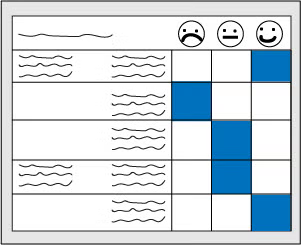Building a Structured Hiring Process
by Peter Sankauskas
A structured hiring process is essential for building a high-performing team. By establishing clear criteria, standardized assessments, and consistent evaluation methods, you can make better hiring decisions and reduce bias in your recruitment.
Initial hiring in a startup can be a bit random and chaotic, where hiring decisions are made based on gut feelings or personal biases. This can lead the team to feel unable to properly evaluate candidates and make objective decisions, ultimately leading to missing out on great candidates.
A structured approach helps ensure that:
- You’re evaluating candidates against consistent criteria
- All candidates have an equal opportunity to demonstrate their skills
- Your team can make more objective decisions
So how much structure is in a structured hiring process? It will vary by company, and usually starts out small and evolves over time as the team gets better at hiring.
Before you even start, you need to have a clear understanding of the role you’re hiring for. This is the first step in building a structured hiring process. Here is what I recommend:
1. Clear Job Descriptions
Start with a detailed job descriptions that outlines:
- Essential responsibilities
- Required skills and experience
- Preferred qualifications
- Success criteria for the role
Most of this will make it to the public-facing JD, so it is a useful exercise anyway.
2. Standardized Screening
Develop a consistent screening process for all candidates:
- Screen resumes using the same criteria
- Make it easy for the candidate to schedule the initial phone screen
- Use a basic script for the initial phone screen with predetermined questions
- Start by introducing yourself and the company
- Ask what kind of a role they are looking for next
- Dive into one specific area of expertise from the job description
- Ask if they have any questions for you
You want to keep this conversational and under 30 minutes. Remember you are selling the company and the vision as much as you are evaluating the candidate.
3. Structured Interviews
Design interview panels with clear purposes, so that no two interviewers are overlapping on the same topic. For a software engineering role, this might look like:
- A multi-phased coding exercise, where each phase builds on the last and gets progressively more ambiguous
- An architectural design exercise, where the candidate is drawing boxes and arrows as they design a system
- Behavioral questions, where the candidate is asked to describe past experiences

Prepare specific questions for each stage and create rubrics for evaluating responses.
Make sure to finish each interview with enough time for the candidate to ask questions. For the final interview, the hiring manager should use the time to talk specifically about the role with the candidate, and really get them excited about the opportunity.
4. Consistent Evaluation
After interviews, gather feedback using standardized forms or rubrics. This ensures everyone is evaluating candidates on the same criteria. Have every interviewer meet shortly after the interviews to discuss their takeaways. When hiring, speed is your friend, so aim to leave the meeting with a decision about whether to move forward.
Tooling
I’m not a sponsored spokes person, but the tool that makes this process easy is Greenhouse. I’ve tried other tools, but always come back to them as it makes creating this structure straightfoward, and it is easy to adopt for the interviewers.
Getting Started
Start small by standardizing one part of your process, such as the initial interview questions. Gradually expand to include standardized assessments and evaluation criteria. If you have never done this before, aim to make the process simple and evolve it over time.
By investing in a structured hiring process, you’ll build stronger teams, better interviewers, and create a fair and effective recruitment experience for candidates.
Need help putting this together? Let’s chat!